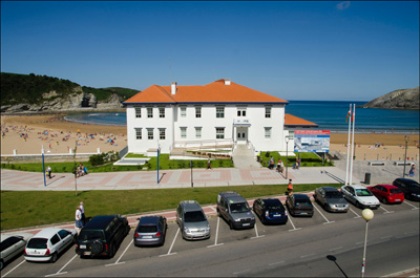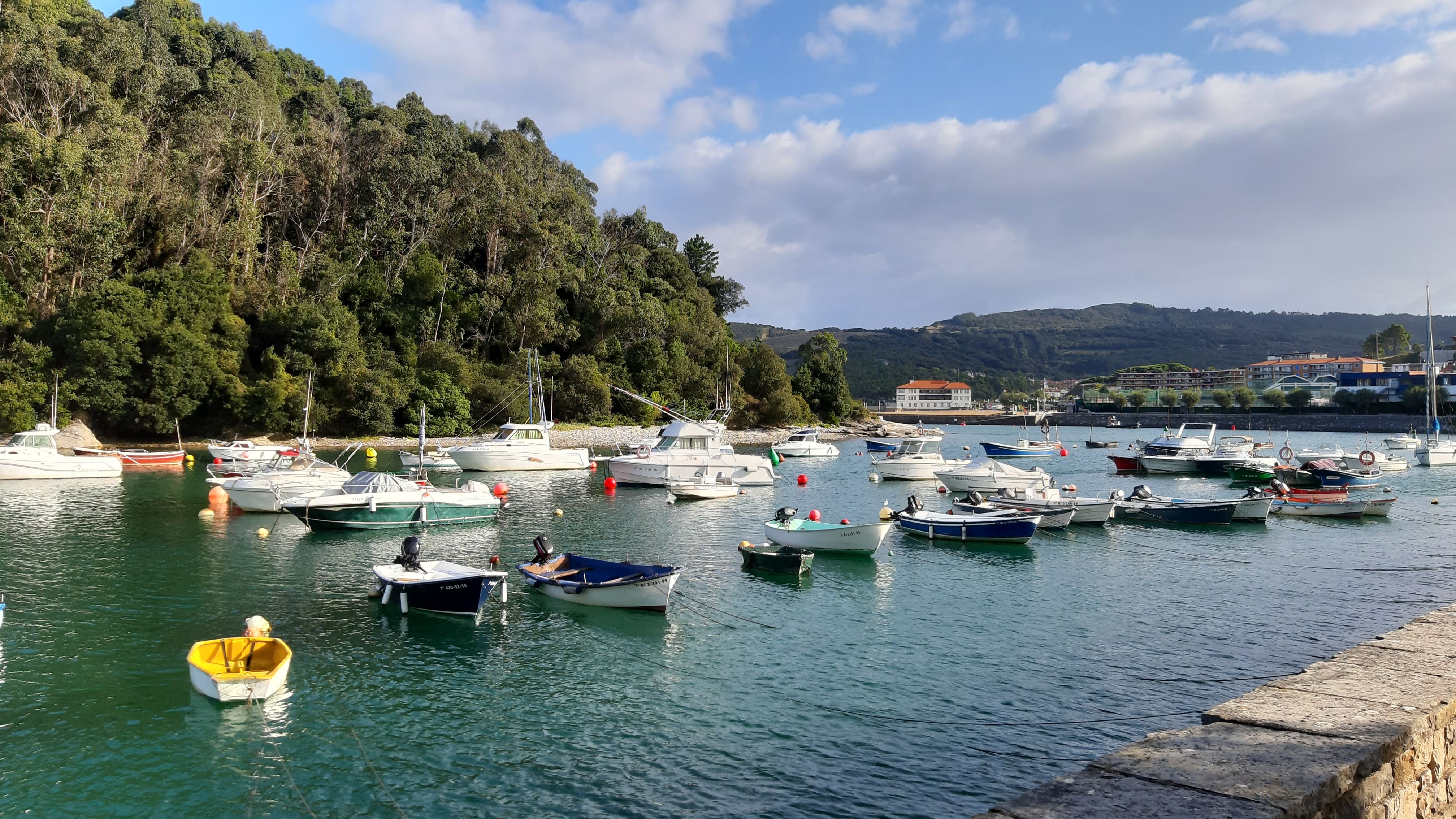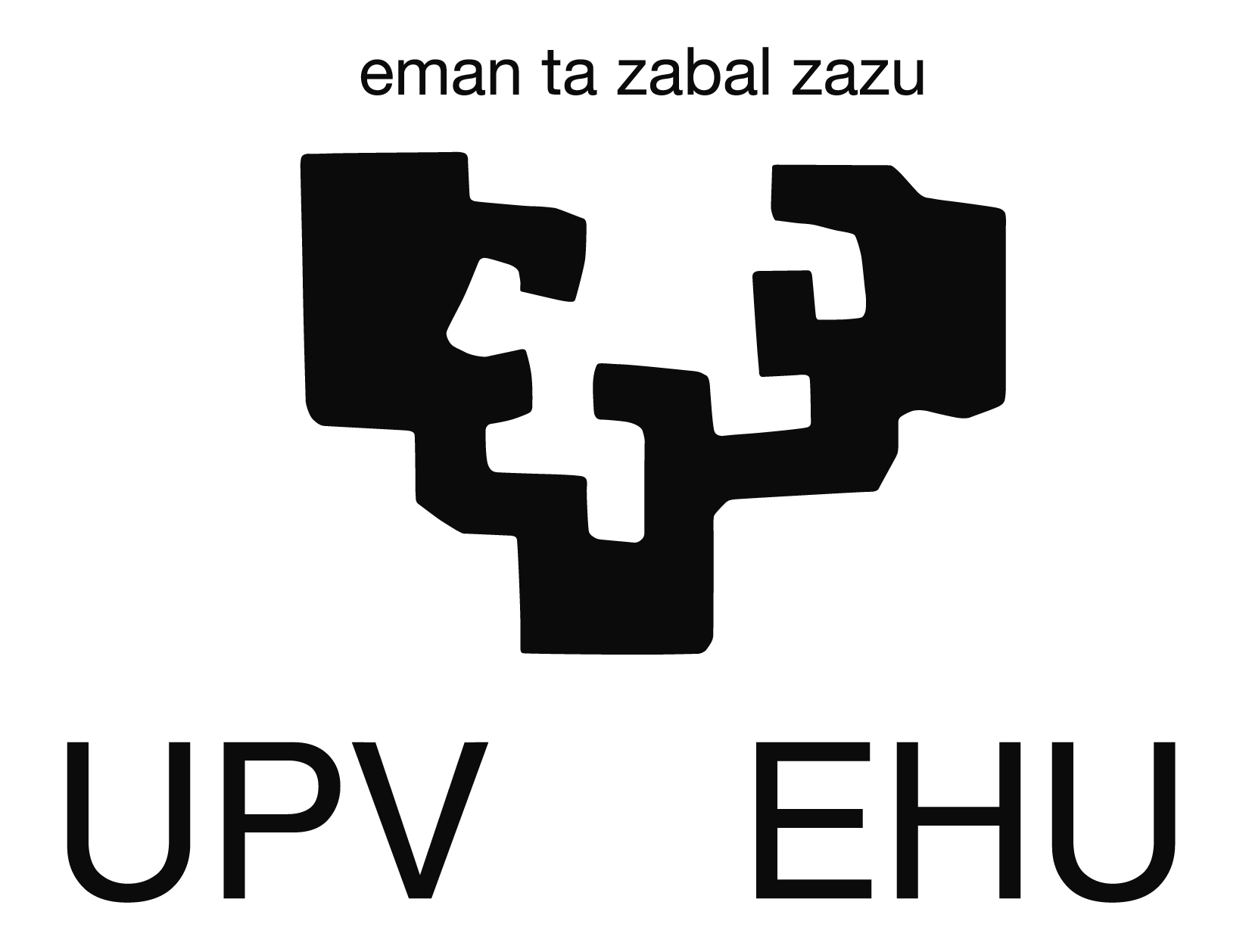University of the Basque Country
General Information
The Research Centre for Experimental Marine Biology and Biotechnology "Plentziako Itsas Estazioa" (PiE-UPV/EHU; Plentzia Marine Station) is an institution created by the University of the Basque Country (UPV/EHU).
The centre is devoted to scientific and technological research. It also carries out teaching activities of specialised education (e.g., postgraduate studies and doctorates) and science dissemination. It provides technical advice in the field of its expertise in order to transfer scientific and technological outcomes to industry and public administration, when needed. Especially regarding the interaction between the ocean and ecosystem and human health and their related disciplines.
Housing
Full information about housing and accommodation services offered by the UPV/EHU is provided by the International Relations Office.
Rented and shared flats is the option mostly chosen by the majority of our international visitors choose for their accommodation while at the university. The usual procedure involves booking a temporary room at a hostel, b&b or hotel for the first 2-3 nights in the city. Immediately upon arrival, students visit our help centre office or the pie-upv/ehu secretariat and will receive assistance to get accommodation. This can be done in advance by email. In addition, there is a buddy service that will give advice and support to visiting students.
Before travelling:
The Accommodation service at the University of the Basque Country incorporates a detailed flat & room database. You can access the database registering on our website.
Useful Links:
Database with available flats and rooms
Living Costs:
Average accommodation fee:
- Overall average monthly expenses: around 800 euros
- Accommodation: 350-450 Euros
- Food :250-300 Euros
- Public transport: 35 euros
- Other expenses: 100 euros
Services
International Relations Office:
The Vice-Rectorate for Postgraduate Studies and International Relations of the University of the Basque Country aims to promote the internationalisation of our institution by managing all exchange programmes taking place at the university and supporting the students, teaching staff and researchers that visit us for educational, tuition or research purposes. We aspire to create a non-discriminatory, multicultural institution that provides excellent education and research opportunities for our community. Its website helps visiting students plan their stay and provide them with all the information and resources they might need. Help Centre offices are available in our three campuses.
Reception services:
Our Buddy programme pairs local volunteer students with international visitors to provide them with a personal support by a peer. Beyond the practical assistance granted to visitors, tone of he programmes' major benefits is the vast number of long-lasting friendships that arise from different encounters. We kindly ask our visitors to fill in their Buddy request only when they have confirmed their arrival at the University of the Basque Country.
Every year, in mid-September, we hold welcome ceremonies for our international visitors at our three campuses. Our Help Centre staff will inform you of the exact date and venue of our ceremonies, orientation sessions and other activities organised by students' associations.
Medical care:
- Medical assistance in Spain for EU residents: European nationals should obtain their European Health Card before leaving their country. This will enable them to get medical assistance by the Local Healthcare, OSAKIDETZA. We additionally recommend our European visitors to have their own medical insurance covering travel accidents, theft and subsidiary civil liability.
- For non-EU visitors, it is mandatory to be covered by a private medical insurance valid for the length of their stay. The insurance should at least comprehend accidents, medical expenses and repatriation. Please, contact your closest Spanish Embassy to find out more about medical insurance conditions required to get an entry visa. There are many different medical insurances you can purchase. In observance of equity principles, we cannot recommend a particular private medical insurance, but we may mention these few for you to choose the best adapted one to your profile. Feel free to further investigate for other companies: Health Plan Spain, Mapfre, Generali and Global Arcadia.
Other medical service available at the UPV/EHU is the Dental Care Centre at the Campus of Biscay; this is open to the public throughout the academic year.
Study support:
- Computer rooms to be used with our /your own devices. Printing and scanning available.
- Cyber amenities: All of our community members enjoy a certain number of computer amenities when registering at the UPV/EHU: e-mail account, computer room access, free wifi service all over the campus and corporate information network access.
- Library: The library at the University of the Basque Country comprises the central library in Leioa, the Koldo Mitxelena library in our Campus of Araba and Carlos Santamaría in the Campus of Gipuzkoa. You can, alternatively, make use of other bibliographical resources available within our Faculties and Schools. Our library collection sums up over 1 million books, 17,000 magazines, 6,400 electronic publications, 88 specialized databases and 10,800 audiovisual materials.
- Laptop lending services and room reservation for teamwork available.
- E- Learning (Our Virtual Campus): Many academic programmes include online assessed coursework. Our Virtual Campus is often used as the primary way to provide students with additional learning material and sometimes as a valuable supplement to physical lectures.
Sports services:
Visitors at the University of the Basque Country can benefit from significant discounts in local gyms, take part in specially organised sport activities and sport courses (surf, aerobics, tennis, basketball, martial arts…) or enrol on a number of competitions as full members of our community.
Students with special needs:
Tailored support is offered to all members of our community with special needs:
- Various support products provided
- Magnetic loop available
- Adapted study-positions at libraries (joystick and magnifying glass)
Our Students with Special Needs support service works on an individual, fully confidential way. For our professionals to assess your needs, please contact:
Servicio de Atención a personas con discapacidad
Psychological support unit:
An international experience can imply a certain cultural shock and moments of frustration, homesickness, anxiety. If you feel some extra help would do you good, contact our Psychological support unit and attend the free sessions available for our students.
Student associations:
- Erasmus Bilbao
- AEGEE Bilbao
- Club Anyway (travel club)
- Engineers without borders, Architects without borders, and many others
Language Opportunities:
UiB offers language learning based on a language exchange programme called Tandem. This is available for all international students studying at UiB, Norwegian students who plan an exchange semester abroad, foreign language students, or any UiB students who want to improve their language skills. The Tandem language learning is simply based on language exchange through communication and interaction between two students speaking different languages. There are also formal courses in Norwegian offered to exchange students, and some formal courses in English language proficiency. These are offered free of charge, as part of enrolment for the semester.
The teaching practices in the specialisation practices offered by UiB promote active learning with many team-based learning activities. Students have often noted in course evaluation surveys that they experience a significant improvement in their confidence and competence in English language as a result of their studies at UiB.
Visa Information
The Autonomous Community of the Basque Country, Euskadi, is institutionally integrated in Spain. Spain is a European Union member state, which means that students, researchers and professionals coming from the European Economic Area – EU member states plus Iceland, Liechtenstein, Norway–, or Switzerland are subject to EU regulations, being able to enter, leave, stay or move freely within the country’s territory. The EU citizens have the right to take up employment, whether working for an employer or for himself/herself as a self-employed person, receiving remuneration in return, and supply or get services.
Student Visas
Those citizens who want to carry out unpaid research or training tasks, or continue their studies in Spanish officially recognised educational centres or scientific institutions (whether public or private) must have a student visa. Student visas must be applied for at the Spanish diplomatic mission or consular office in the student’s country of residence.
Student visas enable foreign citizens to live in Spain for as long as their courses, studies, research projects, or training take. Students or researchers’ family members (spouses and children under 18 or in their custody) can also apply for residence permits to live in Spain, with no need for previous stay on the part of the student/researcher. If the stay must be longer than six months, they must apply for a foreign student card, which certifies that they are legal residents in Spain.
Student visa holders (but not their families) can perform paid occupational activities if they have a request form from an employer, meet the relevant requirements, and the activities are compatible with their studies. A part-time or a three-month full-time employment contract will be necessary.
Non EU nationals who need to obtain their entry visa for Spain can find the location of your closest Spanish Consulate or Embassy here.
Documents required by Spanish authorities to enter the country (slight variations might apply amongst different countries of origin):
- Application form filled in, biometric picture in white background glued to it
- Original passport and copies of all pages containing entry stamps in other countries
- For stays longer than 180 days: medical certificate + translation into Spanish or English + apostil of the Hague
- For stays longer than 180 days: criminal record + translation into Spanish or English + apostil of the Hague
- Proof of registration or pre-registration at the university (acceptance letter is also valid)
- Certification of previous studies
- Address in Spain (if a temporary booking at a hotel is not sufficient, we can provide an accommodation letter)
- Certificate of financial situation (Scholarship information, family support, other ways you will financially rely on throughout your stay)
- Medical insurance for the duration of your entire stay in Spain
- Card of authorisation for studies ("Tarjeta")
Non EU-nationals staying with us for longer than 6 months or whose visa expires before the end of their stay should obtain their ‘Tarjeta de autorización de estancia por estudios’.
Documents to be taken to the police station to obtain your ‘Tarjeta’:
- Passport (original + 2 copies of all pages)
- 2 passport-size photos
- Registration at the University of the Basque Country (original + 2 copies)
- ‘Empadronamiento’ certificate (to be obtained at the city hall, original + 2 copies)
- Medical insurance
Assistance in procedures, document-filling and appointments for police station available at the Help Centre.
The ‘tarjeta’ is only valid for 1 academic year; if the stay exceeds this period, students must proceed to renovation (renovation procedures must be planned to start up to 60 days prior to expiration date).
Residence permit
Non-EU citizens who want to apply to a Spanish Mobility grant will need the residence permit in accordance with the Statutory law on rights and liberties of the foreigners in Spain and its social integration. Those with a student residence permit are not eligible. In order to be legal residents in Spain, non-EU nationals must have a residence permit. Residence permits can be temporary (90 days to five years) or permanent (indefinite stay and employment under the same conditions as Spanish citizens). EU citizens who want to apply to a Spanish Mobility grant or want to open a bank account in Spain (e.g., to receive grant funds) will need to apply for a Citizen Register Certificate. This requires their presence in the Central Police Offices in Bilbao and the procedure will be assisted by the MER Secretariat.
Exams
Examination methods – normative, complaints
Some courses have a system of continuous evaluation. In these courses evaluation is based on class work, assignments and seminars. In the courses with exams these are generally in writing. They are corrected by the lecturer and the scores given to the students through the UPV/EHU web-site intranet. A day is set up for individual meetings with the lecturer to discuss and revise the marks (whether evaluation system). After that date the marks are uploaded in the student’s record. Complaints are solved by a commission specifically designed ad hoc by the Dean.
The language of instruction for the MSc Degree Programme is in English at UPV/EHU. Teaching is offered in English (teaching staff is properly accredited for this purpose), their assessments and the MSc Thesis must be also written in English.
Complaint procedure in force for International Master programmes in UPV/EHU: First the complaint must be made in writing to the person who can correct the situation so that they are given a chance to do so. Often complaints are a cultural or language misunderstanding and easily resolved. If the situation has not been solved within a reasonable time span, the complaint is forwarded to the next level. For example, if the complaint is about a student, the tutor is contacted next. Once more a reasonable time span is given to resolve the situation. Next the UPV/EHU Academic Board of the MSc programme is informed. Next the International coordinator of the Master is informed. If the situation is not rectified students are given 3 warnings. The second time they are warned, the funding agency (e.g., EACEA) is also informed. With the third warning, candidates are informed that non-compliance will result in the termination of the agreement and e.g. payment of fellowship. If the complaint is about an administrator or an academic, the complaint must be made in writing to the person who can correct the situation, so that they are given a chance to do so within a reasonable time span. Next, the UPV/EHU Academic Board of the MSc programme is informed. Next the International coordinator of the Master is informed. If the situation is not rectified in a timely manner, the UPV/EHU disciplinary rules apply.



